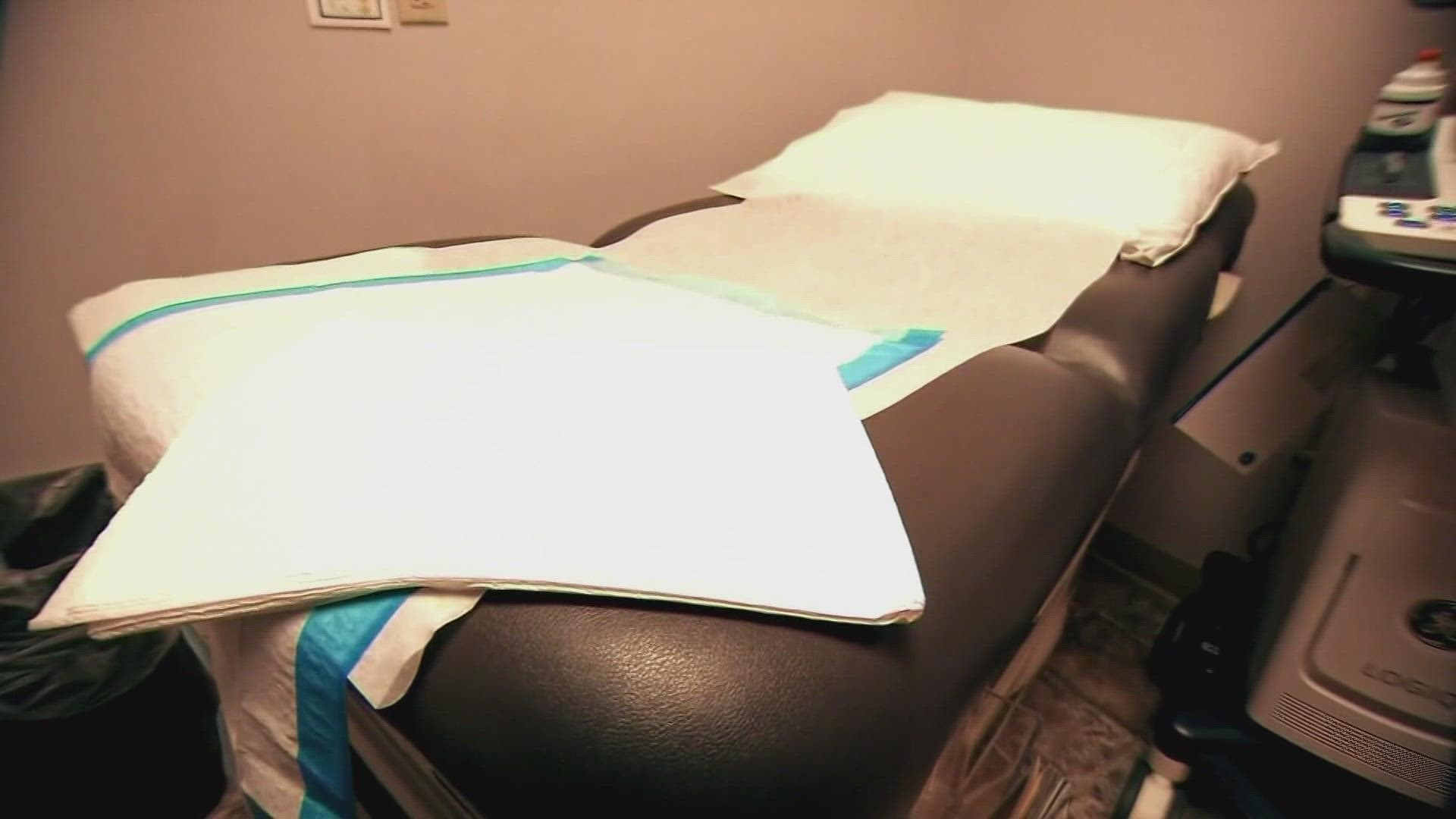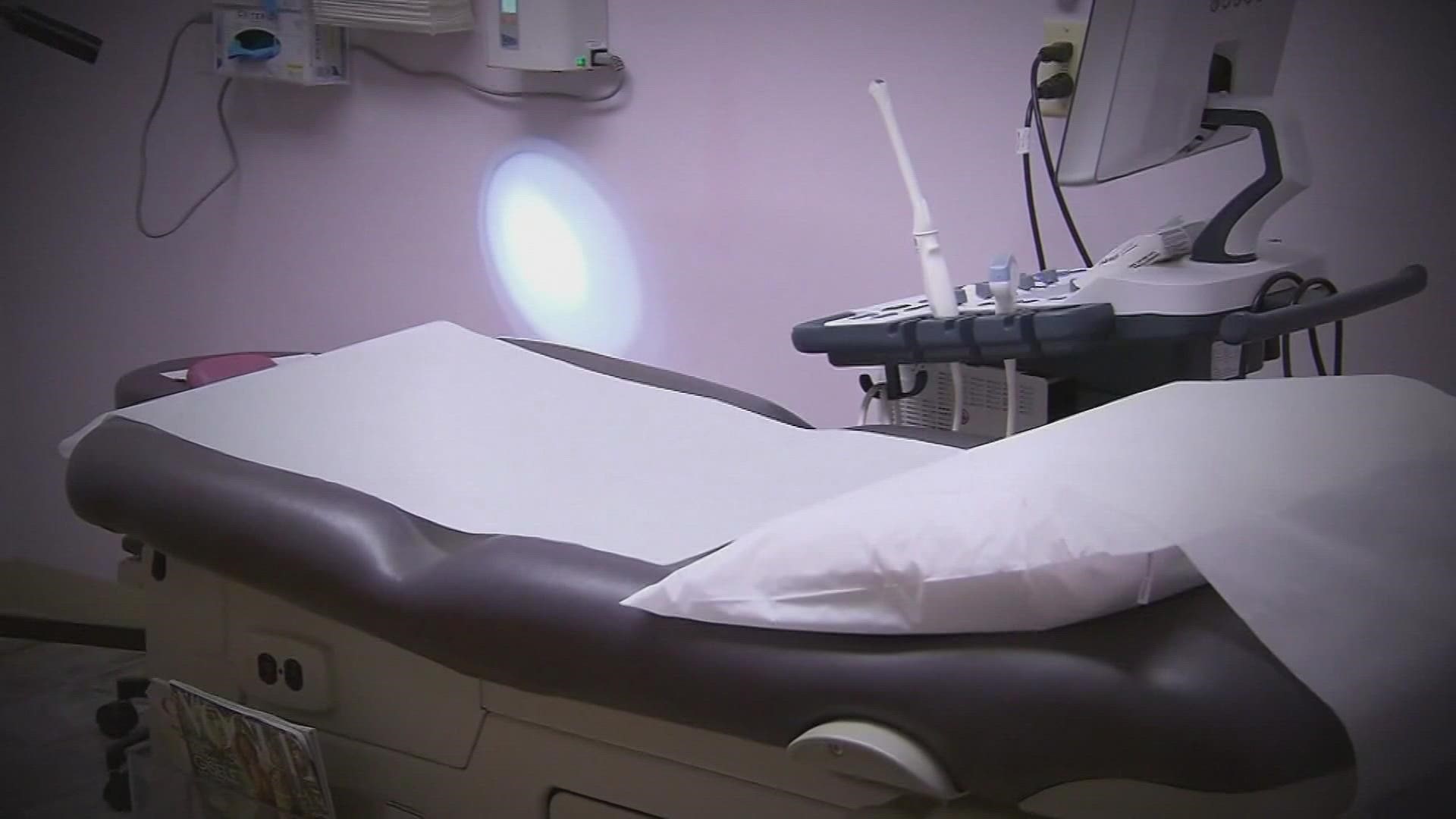KNOXVILLE, Tenn. — When women wake up in Tennessee on Thursday, they will start the day without access to a treatment many had gone their whole lives believing was available to them — abortion.
"This is a very, very sensitive topic," said Senator Richard Briggs (R - Knoxville). "It gets into a very central question about, 'When does life begin? When does a person become a human being that deserves protections under the law?'"
The state's trigger law will go into effect on Thursday, banning doctors from giving most abortion treatments. It does not have exemptions for cases of rape, or if a child is pregnant, or for cases of incest, or many other scenarios. It does allow doctors to perform abortion treatments if a woman's life is at risk.
However, physicians would then need to defend their decision to save a woman's life in court. These cases are considered an "affirmative defense" and doctors would need to prove they did not violate the law by giving an abortion treatment. These kinds of cases usually involve questions about self-defense.
"Every time they perform this procedure, it is a felony," said Chloe Akers, a criminal defense lawyer. "Every time they choose to treat their patients, they accept the fact that they are committing a felony."
"The law will make doctors second guessed their medical training and expertise when choosing a treatment plan or risk of felony of criminal conviction," said Ashley Coffield, the Planned Parenthood of Tennessee and North Mississippi CEO. "Now lawyers and hospital administrators will be weighing in on life or death scenarios."
The state legislature passed the "Human Life Protection Act" in 2019, which makes providing abortion treatments a felony in the state. Since it would be a felony, people who give abortion treatments could lose voting rights and face several other consequences, including fines or prison time.
It also specifically does not try to punish women who receive abortion treatments. It allows abortion treatments if the mother's life would be at risk, but specifically excludes cases where a provider treats someone by giving them an abortion because they could attempt to kill themselves. Abortions in those cases would be illegal.
"Of course, a provider has the ability to perform a termination, and they may still perform a termination if it's necessary to save their patient," said Akers. "But make no mistake, doing so will automatically, by definition, subject that provider to the possibility of prosecution for this crime."
According to Coffield, Tennessee's constitution specifically does not guarantee abortion treatment access after a ballot initiative in 2014. Because of that, she said they cannot challenge the Human Life Protection Act in court. She said she hopes to amend the state constitution and allow abortion access, but warned it would take years.
"This law puts the burden on the physician to prove the abortion was medically necessary to save a patient's life rather than on the state," said Coffield. "Two months after Roe’s fall, one in three American women have lost access to control their own bodies."
Briggs said that lawmakers planned to revisit the law in the next legislative session.
"What the law really does, it serves as a placeholder to have some sort of law in effect until we go back into session in January of 2023," he said. "And then the legislature, of course, at that time will decide do we want to modify the law, which I think we will there will be efforts to modify the law and how we want to modify the law."
Women will still be able to leave the state if they need abortion treatments. The Mountain Access Brigade offers several resources to help women who need abortion treatments. A women's health center also recently crossed the state line in Bristol to continue offering abortion treatments in Virginia.
"Politicians in Tennessee intentionally created this climate of chaos, confusion and devastation for people who become pregnant," said Coffield. "Banning abortion doesn't stop people from needing abortion. It only puts more people's lives in danger."
Planned Parenthood also offers a patient navigation service to help connect people with providers in other states and to help them solve financial and logistical barriers to accessing abortion treatments. They said they can offer support like gas cards and hotel vouchers.
Coffield warned that in states where abortion treatments are legal, there are longer-than-normal wait times for appointments. She said people may need to wait as much as three weeks to see a doctor.
"Not surprisingly, people are scared, they're confused," said Coffield. "They really didn't see this coming. And they believed that providers like Planned Parenthood would fight back and that there would be a path for us to protect this right. And unfortunately, we had to explain to our patients that we didn't have one."
After a Knoxville Planned Parenthood clinic was burned down in an arson case on New Year's Eve 2021, organizers said they planned to rebuild. Eight months later, no suspect has been identified in that case.
"This trigger law is depraved and heartless, and it is anything but Christian," Coffield said. "Governor Lee and the Tennessee General Assembly have created a climate of fear. They've abandoned us and they have left us with a totally manufactured crisis of their own making. But Planned Parenthood isn't going anywhere."


